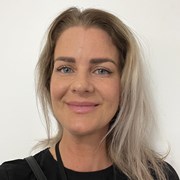This project aims to further develop the "direct seeding" method, a method that is advantageous as the land phase can be shortened by several weeks or omitted entirely. Today, the method has a number of uncertainties associated with it. Reducing these uncertainties is crucial to making kelp farming more efficient.
The project's main goal is to develop and optimise a methodology for direct seeding of sporophytes on substrate - "from seed to sea" - and thereby contribute to a cost-effective Norwegian kelp industry.
There is a growing interest in the seaweed cultivation in Norway and in the rest of Europe, and sugar kelp (Saccharina latissima) and winged kelp (Alaria esculenta) are the most relevant species that in the long term can contribute to meeting the demand for food, feed and renewable materials for a growing global population.
The global annual production of seaweed has exceeded 35 million tonnes, despite the fact that technology for industrial production is under-developed.
In Norway, kelp cultivation is a growing industry that has great potential to become a new biomarine industry, but kelp cultivation is labour-intensive with little mechanisation and automation. With high labour costs, biomass production must increase, and operating costs lowered to make this type of farming profitable. Production biology and technology, together with processing and product development, are central to achieving this.
If we are to succeed with industrialising kelp cultivation, we need the design and development of new concepts and technological solutions for integrated facilities that ensure cost-effective operation in all phases of kelp cultivation, such as cultivation of seedlings, operational operations, farm and biomass monitoring, harvesting, pre-processing and transport of the biomass.
Today's methods for attaching kelp seedlings to cultivation ropes to be deployed at sea farms have many weaknesses and limit both the up scaled production and the quality of the cultivated kelp.
The DIREKTE project is aimed at improving the "direct seeding" method, a method that is advantageous as seedling production can be shortened by several weeks and remove the need for land-based nurseries.
In the project, we will optimise the quality of the sporophyte cultures that are used for seeding the substrate. We will further investigate different types of conditions (substrate, glue) for optimal attachment of the sporophytes, as well as the shelf life of the seeded substrate prior to deployment at sea.
Ultimately, the project aims to find the best environmental conditions and deployment time for direct-seeded substrates that gives a maximum biomass yield.


